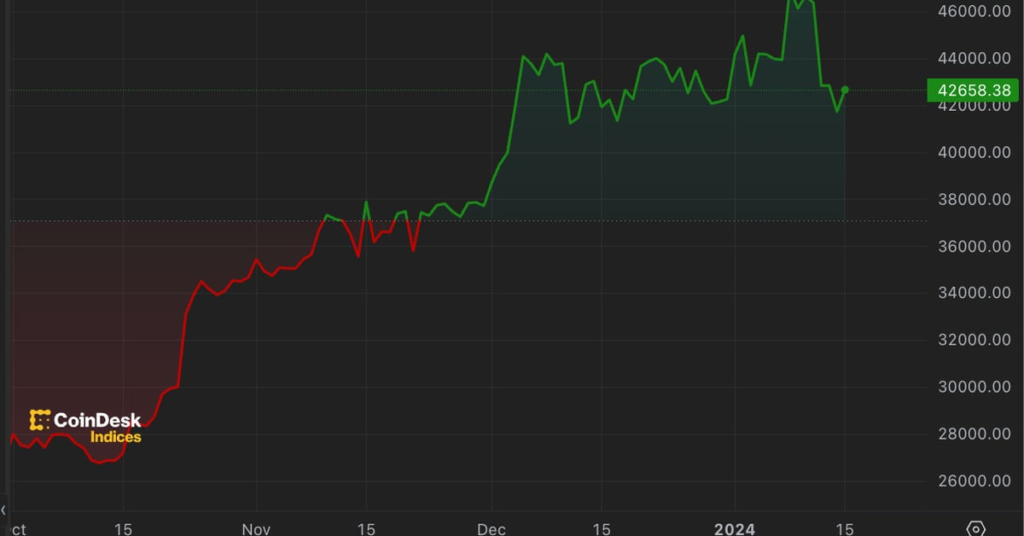This article originally appeared in First Mover, CoinDesk’s daily newsletter, putting the latest moves in crypto markets in context. Subscribe to get it in your inbox every day.
Latest Prices
:format(jpg)/cloudfront-us-east-1.images.arcpublishing.com/coindesk/OIS5KWFZZ5BYZGH3N7DUULN4EY.png)
:format(jpg)/cloudfront-us-east-1.images.arcpublishing.com/coindesk/OIS5KWFZZ5BYZGH3N7DUULN4EY.png)
:format(jpg)/cloudfront-us-east-1.images.arcpublishing.com/coindesk/OIS5KWFZZ5BYZGH3N7DUULN4EY.png)
Top Stories
Bitcoin (BTC) contrarian bets were seemingly proven right as the much-awaited approval of a spot exchange-traded fund (ETF) turned out to be a “sell-the-news” event, one that analysts previously warned was possible given the token’s rapid price appreciation in the past months. “Sell the news” is a well-known term in capital markets and describes how asset prices, leverage and sentiment run-up in the lead-up to a bullish event, only for prices to tumble shortly after. BTC pulled back to as low as $41,500 early Monday before recovering after briefly hitting its two-year high above $49,000 as the first-ever spot bitcoin ETFs in the U.S. started trading last Thursday. The approval of spot bitcoin ETFs in the U.S. was much anticipated and well priced, so the event will likely be a short- to mid-term top for the price, analysts at Japan-based crypto exchange bitBank told CoinDesk in an email.
It’s unclear how much fresh capital the new spot bitcoin exchange-traded funds (ETF) will attract, but significant funds from other crypto products are expected to pour in, J.P. Morgan saidin a Thursday research report. The market reaction to the U.S. Securities and Exchange Commission’s (SEC) reluctant approval of spot bitcoin ETFs has been relatively muted, with the focus now shifting to how much capital these new ETFs will pull in, the report said. “We are skeptical of the optimism shared by many market participants at the moment that a lot of fresh capital will enter the crypto space as a result of the spot bitcoin ETF approval,” analysts led by Nikolaos Panigirtzoglou wrote.
Venezuela is ending its Petro cryptocurrency on Monday, more than five years after it was first launched, according to multiple reports citing a message displayed on the Patria Platform, the only website where the Petro was tradeable. President Nicolas Maduro launched the Petro (PTR) in Feb. 2018 to support the nation’s currency, the bolívar, in the face of an economic crisis exacerbated by U.S. sanctions. The token, backed by the nation’s rich oil reserves, was embroiled in controversy even before the launch. The country’s opposition-controlled congress said it was illegal to borrow against the oil reserves. In 2019, U.S. authorities sanctioned a Russian bank for financing the Petro.




